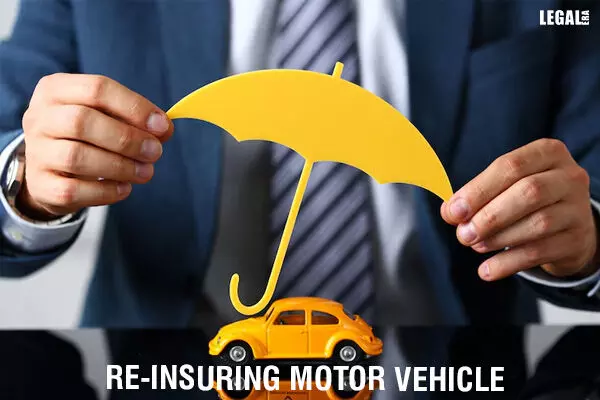- Home
- News
- Articles+
- Aerospace
- AI
- Agriculture
- Alternate Dispute Resolution
- Arbitration & Mediation
- Banking and Finance
- Bankruptcy
- Book Review
- Bribery & Corruption
- Commercial Litigation
- Competition Law
- Conference Reports
- Consumer Products
- Contract
- Corporate Governance
- Corporate Law
- Covid-19
- Cryptocurrency
- Cybersecurity
- Data Protection
- Defence
- Digital Economy
- E-commerce
- Employment Law
- Energy and Natural Resources
- Entertainment and Sports Law
- Environmental Law
- ESG
- FDI
- Food and Beverage
- Gaming
- Health Care
- IBC Diaries
- In Focus
- Inclusion & Diversity
- Insurance Law
- Intellectual Property
- International Law
- IP & Tech Era
- Know the Law
- Labour Laws
- Law & Policy and Regulation
- Litigation
- Litigation Funding
- Manufacturing
- Mergers & Acquisitions
- NFTs
- Privacy
- Private Equity
- Project Finance
- Real Estate
- Risk and Compliance
- Student Corner
- Take On Board
- Tax
- Technology Media and Telecom
- Tributes
- Viewpoint
- Zoom In
- Law Firms
- In-House
- Rankings
- E-Magazine
- Legal Era TV
- Events
- News
- Articles
- Aerospace
- AI
- Agriculture
- Alternate Dispute Resolution
- Arbitration & Mediation
- Banking and Finance
- Bankruptcy
- Book Review
- Bribery & Corruption
- Commercial Litigation
- Competition Law
- Conference Reports
- Consumer Products
- Contract
- Corporate Governance
- Corporate Law
- Covid-19
- Cryptocurrency
- Cybersecurity
- Data Protection
- Defence
- Digital Economy
- E-commerce
- Employment Law
- Energy and Natural Resources
- Entertainment and Sports Law
- Environmental Law
- ESG
- FDI
- Food and Beverage
- Gaming
- Health Care
- IBC Diaries
- In Focus
- Inclusion & Diversity
- Insurance Law
- Intellectual Property
- International Law
- IP & Tech Era
- Know the Law
- Labour Laws
- Law & Policy and Regulation
- Litigation
- Litigation Funding
- Manufacturing
- Mergers & Acquisitions
- NFTs
- Privacy
- Private Equity
- Project Finance
- Real Estate
- Risk and Compliance
- Student Corner
- Take On Board
- Tax
- Technology Media and Telecom
- Tributes
- Viewpoint
- Zoom In
- Law Firms
- In-House
- Rankings
- E-Magazine
- Legal Era TV
- Events
CESTAT Permits CENVAT Credit To HDFC ERGO Against Duty On Re-Insuring Vehicle

CESTAT Permits CENVAT Credit To HDFC ERGO Against Duty On Re-Insuring Vehicle
Notes the error of the Commissioner of Income Tax in reproducing the Section
The Mumbai bench of the Customs, Excise, and Service Tax Appellate Tribunal (CESTAT) has allowed the Central Value Added Tax (Cenvat) taken by HDFC ERGO (appellant) against the duty paid on re-insuring motor vehicles while providing general insurance service from April 2011 to March 2012.
The bench of Suvendu Kumar Pati (Judicial Member) and Anil G. Shakkarwar (Technical Member) observed that the Commissioner of Income Tax blundered in reproducing the section wrongly in his order by replacing ‘provider of output service’ with ‘provider of input service’ to conclude that credit was inadmissible.
The appellant-assessee provides insurance services for motor vehicles. There was no restriction on availing Cenvat Credit on input services before 01 April 2011 and after 01 April 2012, when an exception was carved out for general insurance services.
However, due to changes in the definition of input service, effective April 2011, with the introduction of an exclusion clause, certain inputs were kept outside the purview of Cenvat Credit.
The appellant was asked to pay the amount from April 2011 to March 2012. He was issued a show-cause notice adjudicated by the Commissioner, confirming the duty, interest, and penalties.
The assessee contended that re-insurance of vehicles became a statutory obligation because of the provisions in Sections 34 and 101 of the Insurance Act, 1938.
The general insurance companies have adhered to it in compliance with the 06 December 2006, circular issued by the Insurance Regulatory and Development Authority of India (IRDA).
It is a settled principle of law that payments made in compliance with statutory obligations (to make the output service feasible), are admissible against the payment’s tax component.
The revenue department contended that the exclusion clause under Rule 2A(BA) excluded insurance or reinsurance from the purview of availing credit, unless the vehicle was a capital good.
Therefore, the appellant, a general insurance company, insuring vehicles of others, could not take the Cenvat Credit on reinsurance, for which interference by the appellate tribunal in the order passed by the Commissioner, was unnecessary.
While the CESTAT allowed the appeal, it held that as per the Cenvat Credit Rules, 2004, under Rule 2(l), to meet the statutory requirement of eligibility to provide insurance service as a general insurance company, the appellant was entitled to avail Cenvat Credit on reinsurance of vehicles.



